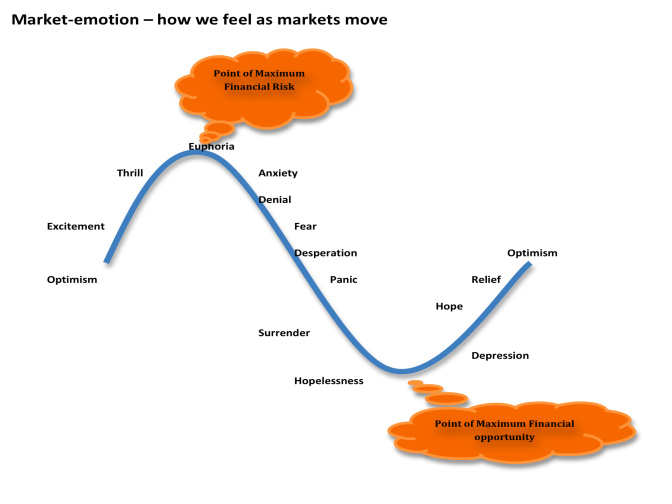What has happened?
So many have heard about the happenings in the financial markets over the last few months from the news reporting but here is a quick recap:
- Equity markets have fallen
- Risk related currencies such as the Australian Dollar have weakened
- Corporate bond spreads have generally widened
- Market Interest Rates have fallen (bond prices have risen)
- Official Interest Rates are expected to fall (by some market participants)
- Safe-heaven assets have appreciated, e.g. Gold
This recent volatility was caused by a number of factors. The major concern is growth in the US has stalled. This may give way to a recession, which would then have spill on effects for the rest of the world. The US’s economic leadership has been undermined by a lack of political unity over the debt ceiling and the S&P credit downgrade. In addition, the European debt saga has shaken confidence in the foundations of the European Monetary Union and its political leadership.
However, there is some good news. Chinese inflation fears have receded with most economist of the view that inflation has peaked. The Australian dollar (AUD) has come off its dizzying heights, which should ease the pressure off non-mining related industries. The Reserve Bank of Australia has halted its tightening cycle while it seeks further clarity of the global economic situation. This is another positive.
Our view going forward …
Our expectation in the medium term remains as a trend for global growth. This is driven increasingly by emerging markets which are not weighed down by debt and benefit from healthy demographics and growing industrialisation/urbanisation. Therefore, we view falls in equity prices as buying opportunities in the medium term.
Investor psychology
The market moves in cycles; share prices move through periods of boom and bust, of calm and volatility and of fear and greed. The diagram below represents the cycle of share prices and investor sentiment which typically accompanies it along that path

As markets near peak or trough, fundamentals such as earnings and employment growth are usually changing more dramatically than sentiment is changing. As markets peak or trough, sentiment is slow to adjust to the new changed reality. For example the bounce in global share markets in mid-2009 was greeted with scepticism, even as green shoots were appearing in the economy.
What should I do?
Do not panic – If you are a growth investor now is not the time cash out as many did in 2008, with terrible results in the ensuring recovery. If you are unsure about things please give us a call.
Remember, that the market moves in cycles – Currently, global shares prices are off 20% from their post Financial Crisis highs, but still 60% from their crisis lows. Meanwhile, fundamentals such as earnings and employment are slowly moving higher and markets have shown signs of improvement.
If you ensure you put your short term needs into accessable assets, your medium and longer term needs into more growth assets you time will smooth out volatility.
